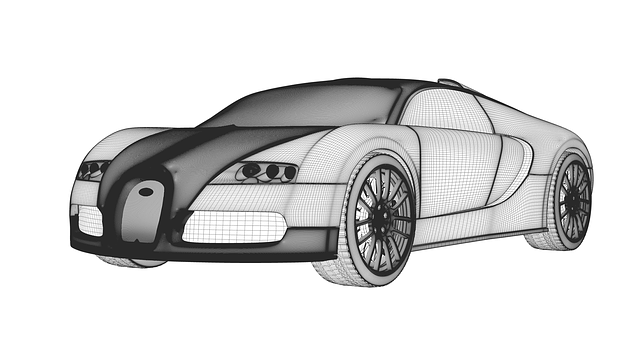Navigating PCP Claims UK: Your Guide to End-of-Lease Options
When concluding a Personal Contract Purchase (PCP) in the UK, you have three main options at the en…….

When concluding a Personal Contract Purchase (PCP) in the UK, you have three main options at the end of your agreement: purchasing the car outright by settling the final balloon payment, returning it to the finance company if you've opted for a voluntary final payment that covers any remaining balance, or trading it in for a new PCP agreement. If you choose to own the vehicle, you must make the optional final payment and complete the necessary paperwork to transfer full ownership. For those part-exchanging their car, the finance company will assess its condition and mileage to determine its value, which will contribute to the deposit for your next PCP agreement. PCP claim management in the UK is streamlined through the finance companies that facilitated your original PCP, ensuring that any claims are processed accurately, whether you're keeping, returning, or trading in your vehicle. It's crucial to maintain clear communication with your provider and understand the terms of your PCP claim to navigate this transition smoothly. PCP claims UK can offer support and guidance for both purchasing your car outright and handling any disputes over car condition or valuation. Utilizing pcp claims uk resources effectively will help you make informed decisions and optimize your financial strategy at the end of your PCP agreement.
When the term of your Personal Contract Purchase (PCP) agreement draws to a close, understanding your options becomes paramount. This article serves as a comprehensive guide, navigating the intricacies of PCP claims in the UK and outlining your subsequent steps. Whether you’re considering ownership, opting to return the vehicle, or leasing anew, we delve into the process of making a PCP claim and the various choices available post-agreement. Key terms like ‘PCP claims’ and ‘PCP claim’ will be explored to ensure clarity and aid decision-making at this critical juncture.
- Understanding Your Options at the End of a PCP Agreement: A Guide to PCP Claims and Next Steps
- Navigating PCP Claims UK: What to Expect When Your Personal Contract Purchase Agreement Concludes
- The Process of Making a PCP Claim: How to Manage Your Options at the End of Your Agreement
- Exploring Your Choices Post-PCP Agreement: Ownership, Return, or a New Car Lease
Understanding Your Options at the End of a PCP Agreement: A Guide to PCP Claims and Next Steps

When your Personal Contract Purchase (PCP) agreement reaches its concluding phase, it’s crucial to be well-informed about the options available to you. The end of a PCP contract signifies a decision point where you can choose to own the vehicle outright, return it to the finance company, or trade it in for a new model. Understanding your PCP claims process is key; in the UK, this involves notifying the lender of your intention to either retain the car or return it. For those opting to keep their vehicle, they must settle the optional final payment, which concludes the agreement and transfers ownership. If you’ve made PCP claims throughout the term for damages or issues not related to wear and tear, these claims will have been settled directly with the finance company, often without affecting your credit score. Upon returning the vehicle, ensure all maintenance and service records are up to date; this can be beneficial if you make a PCP claim for any unforeseen issues post-return. For those looking to upgrade, exploring trade-in values and understanding how these tie into any potential new PCP agreement is essential. Keep in mind that the equity you’ve built up in your current vehicle will influence your next PCP deal’s deposit and monthly payments. It’s advisable to calculate this early on to navigate your next automotive journey with confidence and clarity.
Navigating PCP Claims UK: What to Expect When Your Personal Contract Purchase Agreement Concludes

When your Personal Contract Purchase (PCP) agreement reaches its conclusion in the UK, understanding the process for handling PCP claims is crucial for a seamless transition. PCP claims UK are managed by finance companies that facilitated the initial agreement, and they will provide guidelines on how to proceed once you’ve made your final payment or decide to return the vehicle. Typically, upon reaching the end of your contract, you have three options: you may choose to purchase the car outright for an agreed lump sum, which is often based on the pre-agreed Guaranteed Future Value (GFV); part-exchange the vehicle for a new one under another PCP agreement; or simply return the car if you’ve opted for a voluntary final payment that covers any outstanding balance.
If you decide to retain the vehicle, the PCP claims process involves settling the final payment as stipulated in your contract and completing any necessary paperwork to transfer full ownership. The finance company will provide a settlement figure, which is the GFV plus any outstanding interest. Upon receiving your final payment, they will register the car in your name with the DVLA. Should you choose to part-exchange, the value of your current vehicle will be used as a deposit towards your new PCP agreement, with the finance company assessing its condition and mileage to determine its worth. In either case, timely communication with your finance provider is essential to ensure that all PCP claims are processed correctly and efficiently, avoiding any potential complications as you transition from your current PCP arrangement to the next phase of vehicle ownership.
The Process of Making a PCP Claim: How to Manage Your Options at the End of Your Agreement

When navigating the process of making a PCP claims in the UK at the end of your Personal Contract Purchase (PCP) agreement, it’s crucial to understand your options and the steps involved. Upon reaching the end of your agreement, you have several paths to follow, each with its own implications for your financial situation and vehicle ownership. The first step is to settle the optional final payment if this was agreed upon at the start of your contract. If you’ve been making regular payments towards the optional final payment and choose to own the vehicle outright, you’ll need to pay this amount in full. Once settled, the title to the car transfers to you.
Should you decide that you no longer wish to keep the vehicle, you have two primary options: you can either hand it back to the finance company or opt to part-exchange it for a new vehicle. Handing back the car typically means returning the vehicle in good condition, within the agreed mileage, and without excessive wear and tear. Failure to meet these criteria could result in additional charges. The part-exchange route allows you to use the equity in your current vehicle as a deposit towards a new one, often leading into another PCP agreement. In both scenarios, it’s advisable to communicate with your finance provider well before the end of your contract to understand the specific terms and conditions that apply to your PCP claim. Understanding the process and managing your options at the end of your PCP agreement is key to a smooth transition, whether you choose to own the car or trade it in for a new model.
Exploring Your Choices Post-PCP Agreement: Ownership, Return, or a New Car Lease

When your Personal Contract Purchase (PCP) agreement reaches its maturity, you have several paths to take. Each option presents unique advantages and considerations, tailored to fit different financial scenarios and car ownership aspirations. If you’ve grown attached to your vehicle and wish to continue driving it, exercising the option to purchase the car outright may be the most straightforward choice. This involves settling the final balloon payment stipulated in your PCP agreement and transferring ownership into your name. It’s prudent to appraise the car’s current market value against the settlement figure to ensure it’s a financially sound decision, especially as pcp claims UK can assist with any disputes over the car’s condition or valuation.
Should you prefer to explore new horizons and upgrade to a different vehicle, opting for a return option could be your best move. This entails handing back the car to the finance company, provided it’s in good condition as outlined in the PCP contract terms. Any excess mileage beyond what was agreed upon at the start of the lease will result in additional charges, so keep accurate records and plan accordingly. Lastly, if your heart leans towards a new set of wheels but your budget is tight, you might consider a new car lease. This option allows you to drive a fresh model while benefiting from often lower monthly payments compared to outright purchase or financing options. Each choice offers distinct opportunities, and it’s essential to weigh them against your financial situation and automotive needs as you navigate the end of your PCP agreement.
When reaching the end of a Personal Contract Purchase (PCP) agreement, understanding your options and navigating the process can seem daunting. This guide has demystified the PCP claims UK landscape, outlining clear steps for managing your end-of-term choices. From exercising your option to own the car outright, opting to return it, or leasing a new vehicle, you’re now equipped with the knowledge to make informed decisions about your PCP claim. Remember to review the terms of your agreement and consult with a financial advisor as needed to ensure a smooth transition. With these insights into the PCP claims process, you can confidently choose the path that aligns best with your needs and circumstances post-PCP agreement.







